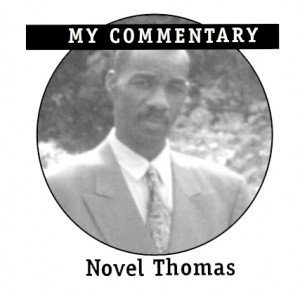
Fidel Castro was many things to many people, among which was a polarizing figure. That’s irrefutable. Some people loved him and others loathe him.
When the legendary Cuban revolutionary leader died on Friday, November 25, it was international news. His life and times became the lead story of daily newscasts for the next nine days, a period of mourning (or celebration) of his life, which began in Havana and culminated with hundreds of thousands of people lining the 800km route waving Cuban flags and shouting “Long live Fidel!” as the urn bearing his ashes arrived in Santiago de Cuba, his final resting place, on Sunday, December 4.
When I heard the news on the radio Saturday morning I quickly turned on the TV and channel-surfed to see live images of his detractors and lovers alike. All spoke of the life and times of the legendary revolutionary icon.
Depending on what medium one goes to for information, one would think Cuba is a prison where thousands are scrambling daily to escape to Florida. But the images coming out of Cuba was confirmation that Cubans love their country; that love and sense of patriotism to their legendary leader were as evident as Americans are to Uncle Sam and country.
Down in Miami, it was a carnival-like atmosphere as people hit the streets to thank God that Fidel was finally out of their ideological hair. They seemed energized by their president-elect who, in solidarity with them (the almost million or so Floridians of Cuban background and their offspring who were able to find refuge in Miami). He offered a four-word tweet that Saturday morning to those who welcomed the news: “Fidel Castro is dead!”
[And then there was that handful of Cuban expatriates, with a more subdued reaction to the news… They were able to penetrate the ideological fog and focus on another side of Fidel Castro—a more practical human side, devoid of ideology.
I for one embraced him for his social… humanitarian endeavors in the so-called “developing or Third World”: in the Caribbean, Latin America, Africa and elsewhere. Cognizant of the Castro effect over five or so decades of spreading revolutionary ideals in the face of combating deeply-rooted remnants of colonialism and imperialism. He inspired those under its yoke to rise…]
Which is why for over five decades Castro found himself on the wrong side of America, and the ideological impasse and optic (which has been fostered for generations and several presidents) through which Fidel Castro (and Cuba) has been viewed for decades.
In maintaining the old American narrative, Trump tweeted, “While Cuba remains a totalitarian island, it is my hope that today marks a move away from the horrors endured for too long, and toward a future in which the wonderful Cuban people finally live in the freedom they so richly deserve.”
As many who are unable to come to terms with the humanitarian qualities of the late Cuban leader, such outmoded (freedom) sentiments have done little to engender change in the Cold War-type relationship, the “Americo-centric view of Cuba,” as one commentator put it, where America has always forced the rest of the world to view Cuba through the U.S. optic. In other words, viewed as the global paragon of liberty, justice and freedom… general human satisfaction, all coated in political-ideological platitudes.
Ironically, as various U.S. administrations over the decades spoke of ideologically based political utopia for Cubans and other nationals throughout the Cold War, Western nations were fomenting unrest in nations where unspeakable human rights violations were ongoing. In many mineral-rich African nations for example, human rights violations were the norm. Meanwhile, the paragons of virtue were simply paying lip service… they were primarily concerned with protecting their multi-national mineral rights (as well as their coterie of repressive regimes) than human rights.
Cuba and Castro’s so-called reign of terror and human rights violations happening 90 miles away were more important and urgent than (their proxies’) repression of Africans thousands of miles away.
Which is why, in keeping with his liberation ideology and global solidarity with peoples of the “Third World”, Castro sent Cuban forces—medical, educational and military—to help in Africa’s colonial and post-colonial liberation.
South-West Africa (today named Namibia, a rapidly developing country), Angola and Ethiopia are some of the countries thousands of Cuban lives have been sacrificed in the anti and neo colonial liberation process and Cold War.
According to one article, Fidel Castro was convinced that the global stage for the ‘world revolution’ was happening in Africa — and thus Cuba became the first Latin American nation to go to war outside its own continent.”
That all unfolded at a time when “Washington and Moscow battled for ideological supremacy…” and certain African countries…became symbols of the regional conflicts of the Cold War, from which the two players derived power through proxy wars.
Castro was a quote, “tyrant” to some; to others he was a savior, a Robin Hood-type. Some international leaders recognized and quietly admired that quality.
Prime Minister Justin Trudeau recognized that, thanks to his father’s long relationship with Fidel. Which is why in acknowledging the Cuban leader’s death, and describing him as a “[…] legendary leader…” he rubbed many people the wrong way. His statement drew the ire of many Canadians.
President Barack Obama offered his condolences to Castro’s family, reaffirming that the Cuban people have a “friend and a partner” in the U.S.
“We know that this moment fills Cubans — in Cuba and in the United States — with powerful emotions, recalling the countless ways in which Fidel Castro altered the course of individual lives, families, and of the Cuban nation,” an Obama statement read.
“History will record and judge the enormous impact of this singular figure on the people and world around him.”
Obama said his administration has worked hard to “put the past behind us” and pursue a future in which the Cuban-American relationship is defined not by differences, but by “the many things that we share as neighbors.”
In paying tribute to Fidel Castro, former President Jimmy Carter passed on the ideological and geopolitical, and focused instead on the human.
“Rosalynn and I share our sympathies with the Castro family and the Cuban people on the death of Fidel Castro. We remember fondly our visits with him in Cuba and his love of his country…. We wish the Cuban citizens peace and prosperity in the years ahead.”
During his presidency Carter and Castro enjoyed warm relations, so much so that he took a step to normalize relations between the two nations, and the two shared several visits, including a 2011 journey where Castro called Carter a “friend.”
Not surprisingly, in promising to rollback any Obama initiatives aimed at improving relations with Cuba, America’s narcissistic, benevolent dictator, President-elect Donald Trump continued on how he really feels about the deceased Cuban leader: Castro is a “brutal dictator who oppressed his own people for nearly six decades… [His] legacy is one of firing squads, theft, unimaginable suffering, poverty and the denial of fundamental human rights… hope his death gave Cuban Americans the hope of one day soon seeing a free Cuba.”
His Vice President-elect, Mike Pence, followed on Twitter: “The tyrant #Castro is dead. New hope dawns.”
With that type of Cold War rhetoric, the incoming administration seems to be gearing up to fuel the smoldering Cuba-America ideological impasse, rather than continuing to engage in rapprochement initiated by the outgoing Obama administration.
But as has been stated Fidel Castro (and the Cuban system) outlived many U.S. presidents. And when his brother Raul met President Obama in early 2016, he stated categorically that “ Cuba will not waver from its 57-year-old revolution and government officials say the United States needs to end its economic embargo and return the Guantanamo Bay naval base to Cuba before the two nations can enjoy normal relations…”
Look for President Trump and the U.S. Congress to maintain the status quo – the embargo – and for the Cuban people to not buckle to the decades-old pressure…












